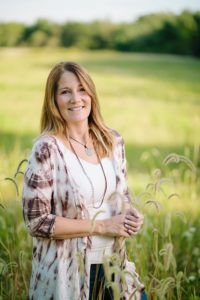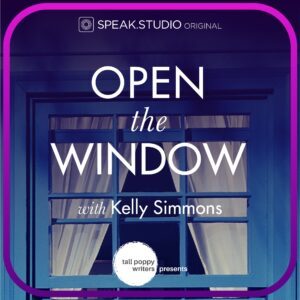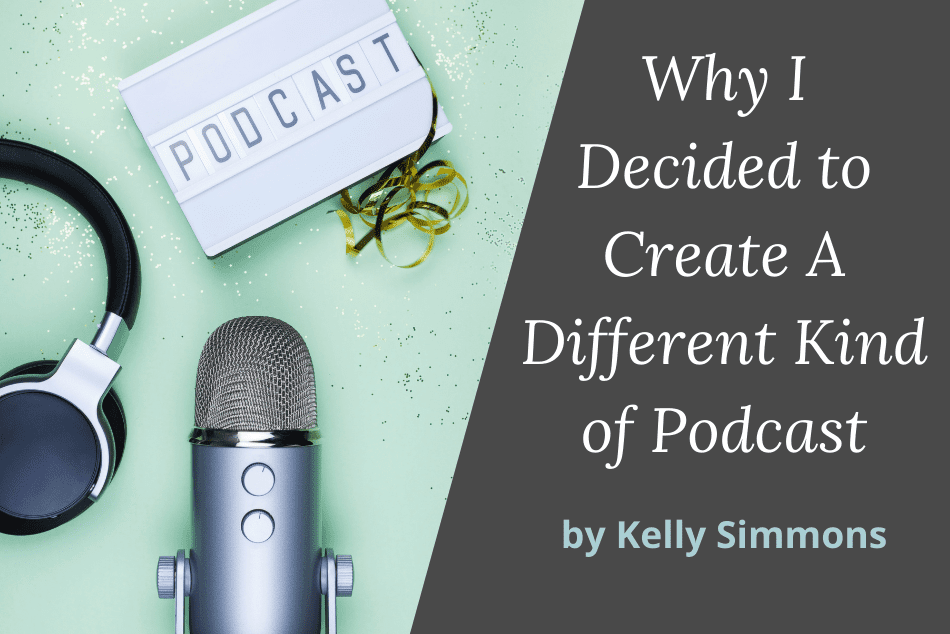There are two kinds of writers: Those who have a podcast, and those who’ve thought about it. I co-hosted one for years: The Liars Club Oddcast, interviewing authors and creators. But I harbored a secret shame over my meager contributions. I quit journalism school because I wasn’t aggressive enough to get interviews. Why, then, was I struggling to interview writers every week? At some point, I felt like the designated laugher, a seat-filler. My co-hosts were good at it. Me, notsomuch.
When a radio personality friend cast me in a small role in a radio drama, a big production with actors, a studio, original music and sound effects (I played a Police Dispatcher, chosen for my “calm monotone”) I was intrigued by his project but intimidated by the scope and distribution. I started seeking out podcasts that had the same storytelling feel, but they all seemed to be science fiction or genres that didn’t resonate. And, they were long and had the same huge production value. They often felt like novels or movies, shoved into audio.
Everyone was still thinking, “we have to hire an actor.” Until I said that um, maybe I could try reading it myself? Maybe?
I dreamed of creating something audio-centric, smaller and narrower, more like the first-person, unreliable narrator suspenseful fiction I write and read. Something short and snappy. Something that took advantage of sounds and imagination. Something with one actor, not a whole cast. Something I could write for one person who knew exactly how to read it.
Through a partnership between Tall Poppy Writers and Hollywood’s Speak Dot Studio around 18 months ago, I learned Speak was looking for podcast pitches to showcase on their new podcasting platform. So I whipped up a pitch, wrote the first couple pages, and took a meeting. (So Hollywood!)
They liked the idea, but they, too, planned to enter the serial fiction, or audio drama space, in a much larger way. Multiple actors, big production value. All of which was great, I said. But I think there’s a market for a “sound story” that’s more intimate. More like a friend around a campfire. Fiction that feels real. Heads nodded. But everyone was still thinking, “we have to hire an actor.” Until I said that um, maybe I could try reading it myself? Maybe?
I could feel the surprise (okay, maybe shock) in the room. There is a huge difference between my casual, freewheeling speaking voice and the way I behave when a microphone is near. After many years in advertising, doing TV and radio demos, I knew I could morph into serious narration mode for at least thirty seconds at a time. But they didn’t know that. I wasn’t an actress or on-air personality or even a person who you listen to and think, “wow they have a nice voice.” But, I was free! And they said yes. I mean, why not? It was the middle of a pandemic. They needed content, and I offered it.
I knew I was the right one to do it. I could rewrite on the fly, fix it, tuck in the corners of the scripts.
I learned a lot in the process. I had the arc of the story for Open The Window — a young woman is haunted by something she hears as a child, and her memories come flooding back when her sister receives a strange message from a neighbor (all of which, in her mind, might be linked to a pair of unsolved murders) — but it took time to carefully craft it for the ear, not the eye. Timing each chapter for length (around 10 minutes) wasn’t easy. And then –making sure it sounded right for my voice. All I did for months was read aloud, re-write, re-read aloud.
Everyone on their team was patient with me while I muddled through the logistics of microphones and recording from home. Trying to create the quietest environment when there was an assault of weed whackers outside or a cat sneaking into my room and jumping on me out of nowhere (edit out my scream, please!) I literally sweated through my clothes performing these 10 chapters, so focused on reading carefully and engaging the listener. It was all on me. But even though it was nerve-wracking, I knew I was the right one to do it. I could rewrite on the fly, fix it, tuck in the corners of the scripts.
If you want to try recording anything yourself, my advice is, get a good microphone and set up in a room that’s carpeted, has draperies and soft upholstered furniture.
In truth, I have nothing but respect for “real actors.” But sometimes, when creating something new, only the writer knows exactly how to bend and stitch the cloth. And when people say “Oh my gosh, it turned out so well! I love it!” I try not to hear the surprise in their voice. Who knew you had it in ya, is what I hear. Well, I was audacious enough to know I could at least try.
If you want to try recording anything yourself, my advice is, get a good microphone and set up in a room that’s carpeted, has draperies and soft upholstered furniture. (Honestly, a closet is often the best place. Soft furnishings absorb extraneous noise in the room, unlike wood and glass which bounce and amplify it.) Experiment with recording apps and learn how to set levels and adjust how you sound. (You-Tube is pretty amazing for teaching, but so is trying things and seeing what works!) If you have a musician or actor friend? They likely know exactly how to do this, and can help you.
There are podcasting distribution services that are pretty affordable if you don’t relish the idea of learning how to upload your own project everywhere. (Or ask a writer, because all writers have podcasts.) But if you go the network or channel route, as I did, be careful what you tell them you can do. They just might ask you to do it!
 Kelly Simmons is the author of six novels sold in 12 countries, and her new serial fiction podcast, Open The Window, is out now from Speak Studio (speakstudiopodcasting.com) or wherever you get your
Kelly Simmons is the author of six novels sold in 12 countries, and her new serial fiction podcast, Open The Window, is out now from Speak Studio (speakstudiopodcasting.com) or wherever you get your  podcasts. kellysimmonsbooks.com
podcasts. kellysimmonsbooks.com





